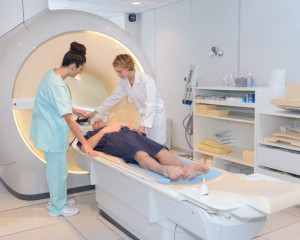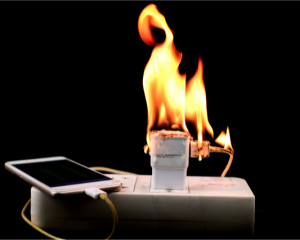Many moderate to severe TBI (traumatic brain injuries) accidents require a patient to be examined by multiple doctors. It is important that the victim be observed and examined as soon as possible to determine his or her condition. Most patients will need extensive medical treatment and being seen by more than one doctor can ensure the best chances for a better life. But what doctor should they see first?
There are many healthcare providers that can have an impact on a patient’s recovery. An individual who has suffered from a concussion, which is a specific type of TBI, could go to their primary physician. Chances are that the primary physician will refer you to a concussion specialist. These specialists are the experts at handling these types of injuries and have an edge over neurologists. In this article we’ll tell you why.
If you’ve just been in an accident and you suspect you may have a concussion, keep reading to learn the signs and symptoms to look out for, why you should consult a concussion specialist instead of a neurologist, and how to prepare for an appointment. You’ll also be informed of other medical professionals you may encounter during your recovery.
TBI or Concussion?
According to the National Institute of Health, millions of people suffer brain injuries in the U.S. every year. TBIs (Traumatic Brain Injuries) occur as a result of sudden traumas that cause damage to the brain. This can happen when an object punctures the skull and enters the brain tissue, or when the head is hit against an object violently.
A concussion, a type of head injury, occurs as the result of a brain damage caused by a sudden move of the brain after a hard hit to the head or body. They are most common among contact sports, car accidents, and dangerous falls. Concussions are typically not life-threatening, but they can be serious.
You may suffer from concussion if you experience any of these symptoms after an accident:
- Feeling nauseous
- Neck pain or headaches
- An ear ringing sensation
- Feelings of dizziness or fatigue
- Having a dazed or “out of it” feeling and not feeling yourself.
Medical attention is needed immediately for more severe concussion symptoms, including:
- Seizures or convulsions
- Feeling drowsy or not able to wake up
- Headaches that keep getting worse and will not go away
- The loss of coordination, weakness, or numbness
- Vomiting and nausea
- Confusion
- Slurred speech
- Losing consciousness
- Changes in sleep
Concussion Diagnoses and Recovery
Diagnoses of concussions are often determined by an exam. This will involve checking a patient’s vision, balance, coordination, and reflexes. This will likely be followed by more tests to assess memory and thinking, and a CT or MRI will likely be required to look for signs of bleeding, inflammation, or skull fracture. This is the first step to getting the right plan for treatment and recovery.
Most people who suffer from a concussion recover. Time and rest are vital for healing the brain. Exercise and activities that require concentration can trigger headaches or other concussion symptoms. Doctors recommend that these should be limited during recovery.
Why you Should See a Concussion Specialist
Concussion specialists are medical professionals who are certified to diagnose, treat, and manage patients with mild traumatic brain injuries. Different state and professional organizations have different certification requirements. Concussion specialists typically have a formal education or training in traumatic brain injuries and maintain current knowledge of the state, national, and international guidelines for the diagnosis and treatment of concussions.
It is becoming increasingly common for doctors to refer patients suffering concussions to specialists trained to care for concussions. Concussion specialists have extensive experience treating concussions and understand the difficulties and issues injured patients face before they are well on their way to recovery. They offer comprehensive care with the goal of returning patients back to their jobs, school, sports, and other activities.
Concussion specialists help their patients build and adhere to a recovery plan based on factors including age, symptoms, daily activities, work schedule, and school schedule. With the appropriate treatment and management, a patient’s recovery is faster, and they have a chance at a better outcome overall.
Why a Neurologist May Not Be the Best Choice
Neurologists are medical doctors who specialize in the treatment of neurological diseases, like Alzheimer’s, Parkinson’s, epilepsy, and stroke. An individual might initially seek treatment from a neurologist if they suspect they have sustained a traumatic brain injury (TBI). After a major car wreck, sports injury, or fall they will likely head to the nearest emergency room. Typically, a neurologist there will examine the patient and assess the extent of the injury.
However, not all concussions require a trip to the ER Patients usually decide to go to a clinic or see their doctor within a day or two of the injury. You might never see a neurologist unless you’re referred to one by your doctor. If the patient is seen by a neurologist after sustaining a head injury, the neurologist will perform a neurological exam — testing mental status, speech, speech patterns, reflexes, and vision in order to identify mild traumatic brain injury or severe brain damage.
If the neurologist suspects internal bleeding or skull fractures, a CT scan could be ordered to determine whether immediate surgical intervention is required. CT scans and MRIs, however, cannot detect concussions since these tests show structural damage, not the type of brain damage. Identifying the type of brain damage is crucial to diagnosing a patient with a concussion. Unfortunately, most neurologists are ill-equipped to treat acute concussions beyond the basic assessment of the injury. Therefore, neurologists may only be an unnecessary step. To save time and money it would be better to cut to the chase and opt for seeing a specialist first.
How to Prepare for an Appointment
Just as it would be for any regular doctor’s visit, patients should be prepared for their first appointment with a concussion specialist. The following are tips from The Mayo Clinic for preparing for first appointments:
- Bring a list of your symptoms. It is important that patients keep track of all symptoms they are experiencing, not just symptoms knowingly linked to the concussion.
- List all personal and known medical information. Being aware of a patient’s unique stressors, recent life events, or other factors is an essential part of diagnosis and treatment. A list of the patient’s current medications and supplements, if there are any, should be provided. Also include descriptions of any conditions for which the patient is currently being treated.
- Bring a family member or a close friend. In addition to helping patients remember details, family members or people close to them may also have information about how the patient’s behavior has been affected or changed by the concussion.
- Come with a list of questions. It can help patients to write down what they want to ask the physician. Perhaps you have questions regarding the persistence of symptoms, treatment recommendations, and plans to return to a normal schedule.
Prepared patients can get the most out of their doctors’ appointments. Making a written list or even bringing a family member along can help ensure nothing is left out during your consultation.
Other Medical Professionals You May Need
As mentioned earlier, when you’ve suffered a serious traumatic brain injury you may need to see more than one doctor during your treatment. Depending on how serious your injury is, you may wind up seeing the following medical professionals:
- Plastic surgeons. Many car accidents and other TBI victims suffer scarring and disfigurement. Plastic surgeons can help a patient feel better about themselves through surgery to improve their appearance.
- Therapist professionals:
- Occupational therapist. These health professionals normally deal with helping a patient with daily activities such as personal hygiene, getting dressed, adapting to their environment, and maximizing physical and cognitive abilities.
- Vocational therapist. Their goal is to assist people get back on track with work and perform their jobs. They help children participate in school. They can assist patients in finding jobs and alternative educational programs.
- Recreational therapist. These counselors assist TBI patients in enjoying their hobbies and social life.
- Physical therapist. He or she assists the patient in walking, moving arms, lifting, etc.
- Speech pathologists. They aid patients in regaining communication skills and help with memory, planning, reading and writing.
- Nutritionists. Your doctor my recommend a healthy change in diet to aid in your recovery.
- Ear, Nose, and Throat doctors. They may be needed if the concussion has caused head damage that has impaired the patient’s ability to hear, smell, or speak.
- Ophthalmologists. They may be consulted if a patient’s vision becomes worse after the injury. Blows to the head can often affect one’s vision.
- Physiatrist. Similar to a general physician except they coordinate multiple specialists seeing the patient so that one doctor can monitor all treatments.





